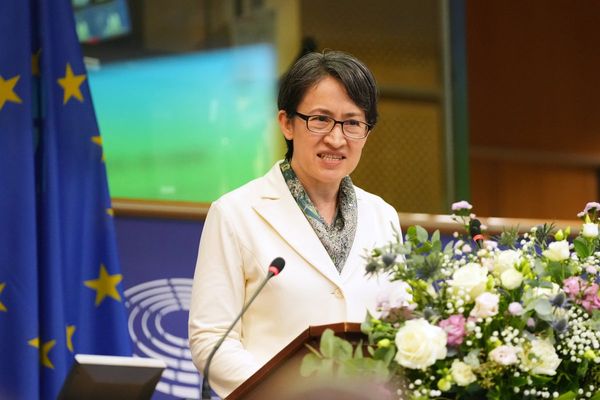
Three victims of organised grooming gangs in Rochdale have received “substantial” damages and an apology from a police chief who accepted his force had let the women down.
The three women, who have lifelong anonymity, met Stephen Watson, the chief constable of Greater Manchester police (GMP), at the force headquarters on Tuesday to be given the apology in person.
It comes a decade after a high-profile trial in which members of a child exploitation gang were found guilty and jailed for their involvement in a horrifying case that prompted a national debate.
Kate Ellis, a solicitor with the Centre for Women’s Justice (CWJ), said the public apology and settled damages claims represented a “landmark moment” after what was a protracted battle. “It really felt for a long time that it was a war of attrition,” she said.
In his apology to the women, Watson said: “It is a matter of profound personal regret that your childhood was so cruelly impacted by the dreadful experiences which you endured. GMP could, and should, have done much more to protect you and we let you down.
“I hope that it will come as some little comfort to know that our confronting our failures in this regard, means that it is altogether less likely that others will suffer as you did. We will strive to keep improving our responses to similarly horrible circumstances, to prevent the same from happening in the first instance, and relentlessly pursuing perpetrators so that they can be held fully to account.”
Concerns about the grooming and sex trafficking of predominately white working-class girls by predominately Asian men began to be raised in the early 2000s.
One of the women receiving the apology is known as Daisy. She was 12 when she was first subjected to abuse, which, over a number of years, included rape and serious sexual assault. She was also the victim of numerous other physical assaults.

Daisy told police about the abuse on a number of occasions between 2005 and 2008. The allegations were ignored and she was treated as a troublemaker and petty criminal, her lawyers say, and still has a criminal record that she will have to disclose for some jobs.
In a statement she said she did not know if she believed GMP had changed its ways. “But I’m happy that they’ve taken into account their failings and there’s finally been some accountability. It’s been 10 years since Operation Span [the GMP investigation] and until now they’d never accepted what really happened. If we’d never found lawyers I don’t know if they ever would have apologised to us.”
A key player in the story has been Maggie Oliver who in 2012 resigned from her job as a detective constable and turned whistleblower to protest at what she saw as terrible police failures. She later set up the Maggie Oliver Foundation ,which supports and advocates for survivors of child sexual abuse.
Oliver said she felt relieved that finally, “after an all-consuming 10-year battle”, GMP “have at last acknowledged that their horrific treatment of these three victims was wrong, even inhumane”.
An apology could not put right the harm the three women had suffered, Oliver said, “but at least now they can begin to look ahead to the rest of their lives knowing they were failed”.
The three women launched their claim against GMP in 2019; proceedings against the Crown Prosecution Service are ongoing. Ellis said what they had achieved was extraordinary after all they had been through.
Harriet Wistrich, the director of CWJ, said: “The trial 10 years ago was hailed as a victory, but it followed years of abject policing failures.”
She said the same failures still existed, pointing to a report published in February that said police and councils were still potentially downplaying the scale of child sexual exploitation by criminal gangs. “We hope this historic victory will provide an additional spur to police forces around the country to implement effective measures to tackle this pernicious crime.”







